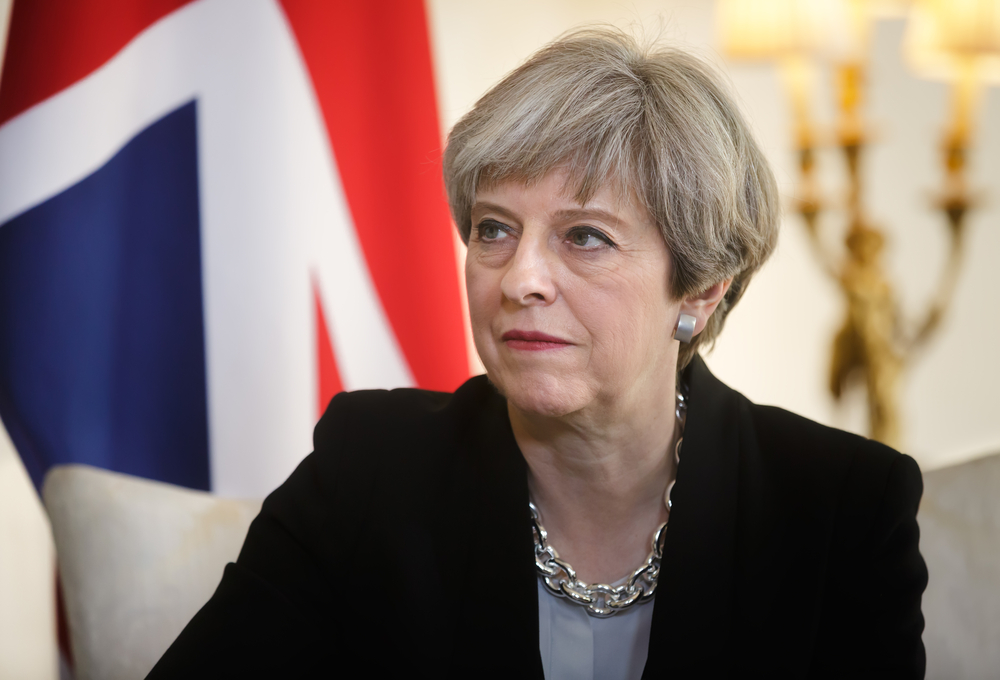Experienced Investor
What does Theresa May’s resignation mean for investors?

Prime minister Theresa May’s announcement that she will resign as Conservative Party leader on 7 June sparked a rise in the FTSE 100 index but created further volatility for sterling.
The pound experienced a rocky ride on Friday, as investors processed the implications of prime minister Theresa May’s announcement that she will step down as prime minister and leader of the Conservative Party on 7 June.
During the morning, the pound finally ended its downward run against the dollar and euro on Friday after an emotional May announced her resignation.
The news will kick off a leadership race for a new Conservative Party leader and prime minister, spelling further political uncertainty for the UK. It also raises the prospects for another general election down the line, which could pave the way for a Labour victory and government led by Jeremy Corbyn, as well as a second European Union referendum.
Investors initially responded positively to the news: sterling spiked to $1.2715 against the dollar during the morning, ending a downward trend caused by the negative reception to May’s latest Brexit plan.
However, as the day went on and the market assessed the full extent of the uncertainty the UK now faces, the pound gave up some of these gains and fell to $1.2649 before recovering to $1.2665 at 15:00.
The news initially sparked a rise in the pound against the euro – ending a losing streak that had lasted 15 days. The pound rose to €1.1357, but gave up ground as the afternoon progressed and was trading at €1.1313 at 15:00.
The UK’s blue-chip index, the FTSE 100, responded positively to the news – it was up 0.85% on the day, trading at 7,292 points at 15:20.
Still no solution to Brexit dilemma
Silvia Dall’Angelo, senior economist at Hermes Investment Management, commented: “Looking ahead, a new leader is unlikely to bring the country closer to a solution for the Brexit dilemma. For a start, the parliamentary arithmetic would not change: while there is a majority against a no-deal Brexit, there is no agreement on the way forward.
“The risk is that under the next leader – most likely coming from the intransigent Eurosceptic wing of the Tory party – the institutional tensions between the executive and parliament will intensify, potentially generating an even more fragmented and dysfunctional political landscape.”
She suspects that this will spark an early general election and this, in turn, would raise the possibility of a second referendum or a no-deal Brexit.
“At any rate, the Brexit situation is unlikely to be resolved any time soon, and uncertainty will persist, which will continue to weigh on the country’s economic prospects and financial assets,” she added.
Adrian Lowcock, head of personal investing at investment platform Willis Owen, commented: “The new prime minister will need to convince the EU to re-open negotiations, and if they don’t succeed then they face the same challenge May did – getting a bad deal or no deal through parliament.”
He added that as the possibility increases of a general election later in the year, investors must consider the potential of a Corbyn-led government.
“So the uncertainty is set to continue for much of this year and during that time international investors are likely to sit on the sidelines and await some clarity,” Lowcock explained.
Brace yourselves for further volatility
Triston Hanson, manager of the M&G Global Target Return fund, could spell great change.
“The one thing that seems likely is that the Conservative Party will choose a pro-Brexit leader. She or he will probably try to re-negotiate elements of the Withdrawal Agreement.
“If unsuccessful, it would be a cold shower for some pro-Brexit Conservative MPs, who will then face the realisation that no better deal existed after all and find themselves stuck with essentially the same set of choices as under Theresa May,” he explained.
As we saw in the wake of the Brexit vote in June 2016, further volatility is likely to lie ahead and investors could get their fingers burnt if they try to make bold predictions and position portfolios in line with these.
On the positive side, Hanson was keen to stress that economic growth has been steady and unemployment has continued to trend lower.
“UK equities offer geographic and industry diversification – and a near 5% prospective dividend yield, which seems very attractive compared to competing yields on cash and government bonds,” he concluded.
Higher likelihood of crashing out
Today’s announcement significantly increases the chances that the UK will crash out of the EU, according to David Zahn, Franklin Templeton’s head of European fixed income. While this is likely to receive a negative market response, it should ultimately create opportunities for shrewd active managers over time.
Whichever candidate comes out on top, Zahn predicts there will not be enough time to renegotiate a fresh deal with Brussels.
“Any further extension to Brexit would again require the approval of all 27 EU member states and they’ve already proven reluctant to compromise further. Potentially, the new prime minister could unilaterally withdraw Article 50, effectively calling off Brexit, but we don’t see appetite for that scenario from any of the leading contenders for the job.
“If the UK is shaping up to leave the EU without a deal, we think the real question then is the degree to which both sides are able to mitigate the worst effects of a no-deal Brexit,” he said.
Zahn suspects sterling will continue to fall while gilt (UK government bond) prices will rise, causing yields to fall – as the two move inverse to each other.